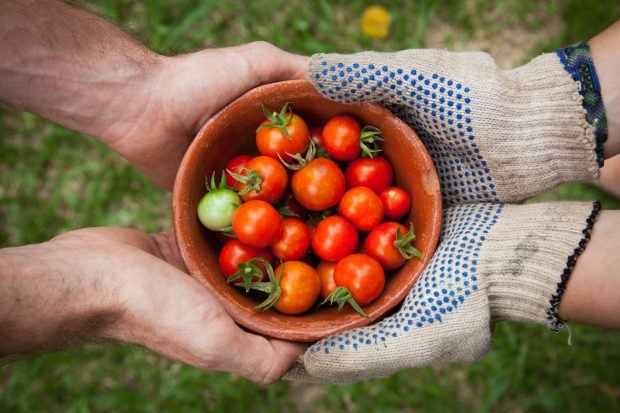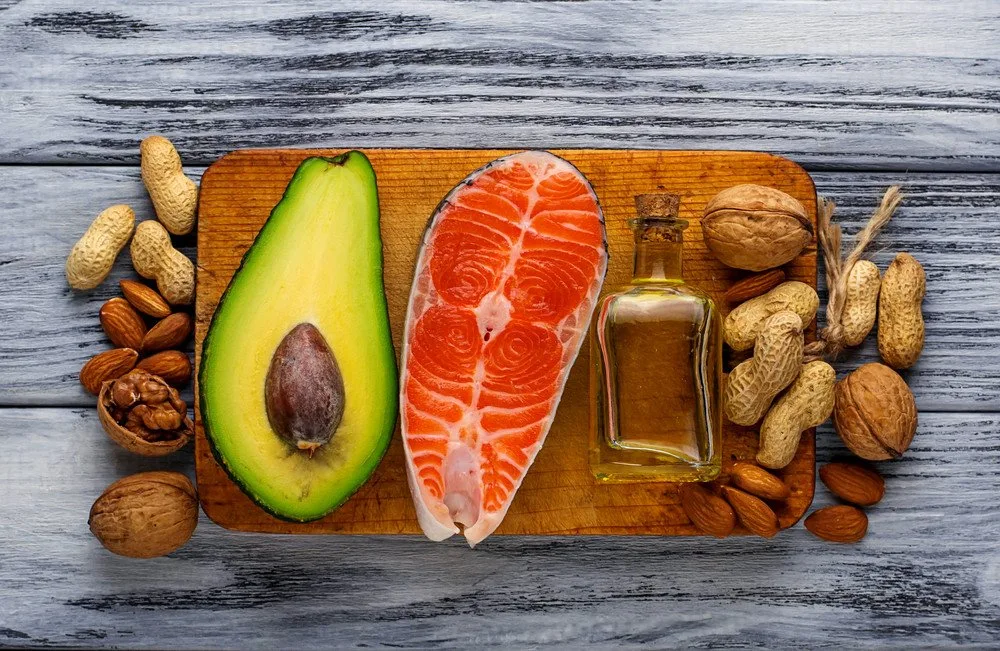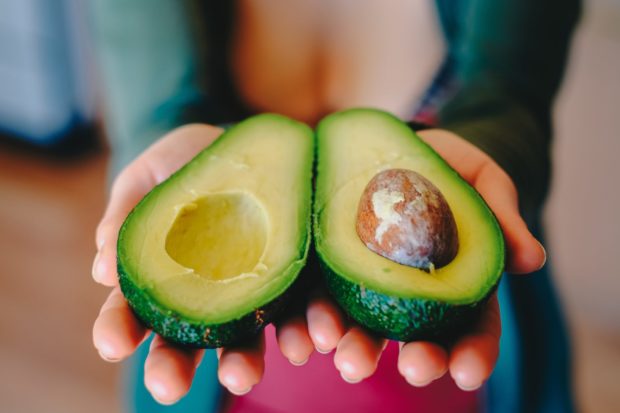As the old saying goes, you are what you eat. Earlier this year, US researchers provided proof of this famous adage by publishing a study that found a definite relationship between the regular consumption of certain foods and reduced mortality. Following their lead, we’ve chosen 10 everyday foods proven to help in the battle against common age-related health issues like heart disease, dementia, breast cancer, and even wrinkles. Written by Karen Fittall.
Superfoods To Keep You Young
1. Egg
Here’s why you should give the humble egg another look in.
Protects against:
- Age-related blindness – eggs contain carotenoid lutein. Low levels of lutein are a major risk factor for macular degeneration, the leading cause of blindness in Australia. Lutein is present in other foods, but is better absorbed from eggs because of elements in the yolk.
- High blood pressure – some egg proteins mimic the action of certain blood pressure medications. The Heart Foundation recommends eating up to six eggs a week.
Boost your benefits by selecting free-range eggs. US researchers say hens are allowed to forage and produce eggs that contain higher levels of vitamins and essential fatty acids, compared to hens fed a purely commercial diet.
2. Apple
An apple a day keeps the doctor away. Here’s why.
Protects against:
- Premature death – according to a Finnish study, an apple-rich diet has a positive effect on mortality. This is thanks to its high levels of flavonoids – plant pigments that have an antioxidant effect.
- Heart disease – studies link daily apple consumption to a 22 percent decreased risk of heart disease and a 23 percent drop in ‘bad’ cholesterol after six months.
- Alzheimer’s disease – apples contain an antioxidant that helps prevent toxicity in the brain’s neurons, which is related to the development of Alzheimer’s. A medium-sized apple provides one serving of fruit.
Boost the benefits by eating the peel as well. It contains 75 percent of the fruit’s dietary fiber and at least a dozen anticancer compounds.
3. Tomato
Tomatoes are a staple for millions of people who age well. There’s a good reason it is a superfood.
Protects against:
- Cancer – tomato-based phytochemicals and carotenoids, like lycopene, have an anti-cancer effect. By encouraging the skin to repair after sun exposure, they may even protect against skin cancer.
- Osteoporosis – at least two studies have proven that dietary lycopene reduces the risk of osteoporosis. In 2009, a US study found that people eating more than 4.4 servings of lycopene a week experienced significantly fewer fractures.
- Heart disease: The University of Adelaide scientists say eating at least 25 mg of lycopene daily lowers blood pressure and reduces cholesterol by up to 10 percent. One cup of uncooked tomato may contain 3.46 mg to 21 mg of lycopene. Adelaide scientists say a daily 500ml serving of tomato juice or 50g of tomato paste provides protection against heart disease.
Boost the benefits by eating cooked tomatoes. A tomato’s lycopene content increases by 54 percent after two minutes of cooking and by 164 percent after half an hour.

Photo by Elaine Casap on Unsplash
4. Spinach
We all know how important it is to eat spinach. Here’s just a reminder of why spinach is so important for longevity.
Protects against:
- Dementia – spinach is folate-rich, and a deficiency can triple the risk of dementia. Diabetes – eating an extra 1.5 serves of green leafy veggies every day could reduce type 2 diabetes risk by 14 percent.
- Wrinkles – a Melbourne study found that a vegetable-rich diet, with legumes and olive oil, protects against wrinkles. Three-quarters of a cup of cooked spinach equals 1.5 servings of vegetables and provides 30 percent of your daily folate requirements.
Boost the benefits by choosing spinach that’s been exposed to fluorescent light in the supermarket. Researchers in Texas discovered that continuous light significantly increases spinach’s folate and vitamin content.
5. Red Cabbage
This humble vegetable packs a terrific anti-oxidant punch.
Protects against:
- Alzheimer’s disease – a red cabbage extract reduces the build-up of plaques in the brain that contribute to Alzheimer’s disease.
- Heart disease and cancer – red cabbage contains at least 36 anthocyanins, pigments that provide the vegetable’s color, promote heart health and protect against cancer. While half a cup of cooked cabbage equals one serving of vegetables, more is better. Because only 20 percent of cabbage anthocyanins are absorbed easily, US researchers found that people who ate two cups of cooked cabbage per sitting absorbed the most.
Boost the benefits by picking red instead of white cabbage – all the time. Red cabbage’s antioxidant activity is at least six times higher, and while 100g of red cabbage contains 23 mg of anthocyanins, white cabbage contains just 0.01 mg.
6. Avocado
This is a staple for anyone committed to a healthy diet. Avocados are truly a superfood fruit.
Protects against:
- Dementia – avocados are a good source of vitamin E, and Dutch researchers found that people who consumed 18.5 mg of vitamin A a day were 25 percent less likely to develop dementia than people eating only 9 mg.
- General aging – there is three times as much glutathione, an amino acid that inhibits the aging process, in avocados than any other fruit. A one-cup serve of an avocado provides 3.29 mg of vitamin E, 47 percent of the recommended daily intake.
Boost the benefits by eating avocado with other fruits and vegetables. The good fats contained in just half an avocado increase the absorption of carotenoids from other foods by as much as 15 times.
7. Oats
They don’t just taste yummy, oats are seriously great for your health.
Protects against:
- Heart disease – studies confirm that eating oats helps lower cholesterol levels. This is due to beta-glucan, a soluble fiber that can block cholesterol reabsorption.
- Oats also contain avenanthramides, which are anti-inflammatory compounds that help to prevent atherosclerosis, or hardening of the arteries – the most common cause of heart disease. Consuming 3g of beta-glucan a day has been shown to help lower cholesterol reabsorption. A 40g serving of oatmeal contains 1.5g of beta-glucan.
Boost the benefits by choosing oats that are as unprocessed as possible. The glycemic index (GI) of oatmeal made from rolled oats can be as low as 42 per serve, but the Gl of quick oats jumps to 66.
8. Walnuts
The lesser promoted walnut is a powerful longevity food. Make sure your pantry keeps handfuls to snack on or add to a salad or dish.
Protects against:
- Memory loss – French research has shown that regular consumption of omega-3-rich foods, such as walnuts and walnut oil, can reduce the risk of dementia by 60 percent.
- Osteoporosis – plant-based omega-3 polyunsaturated fatty acids help to decrease bone resorption, or the breakdown of bones, a known factor in the development of osteoporosis.
- Breast cancer – walnut-sourced omega 3s, antioxidants, and phytosterols reduce the incidence of breast cancer, according to US research. Experts recommend enjoying a handful (30-50g) of nuts. To help protect against breast cancer, researchers suggest eating a 56g serving of walnuts daily.
Boost the benefits by storing walnuts properly. To do this, simply place it in an airtight container and refrigerate it.
9. Fish
Substituting fish for red meat is a massive step forward to better aging. Choosing the right fish is important. Always ensure you stay away from fish that are on the endangered list (you can Google the list easily).
Protects against:
- Dementia and stroke – eating at least three servings of fish high in omega-3 fatty acids a week may result in a 26 percent lower risk of brain lesions that cause dementia and stroke. Cancer – in studies in Sweden, marine-based omega-3s reduced the size of tumors and killed cancer cells.
- Heart disease – regular consumption of marine-based omega-3s has been linked to a 45 percent reduction in cardiovascular-related problems.
- Age-related blindness – eating more than two servings of oily fish a week can reduce age-related macular degeneration risk by 39 percent. The Heart Foundation recommends eating at least 500 mg of marine-source omega-3s a day, achieved by eating two to three 150g servings of oily fish a week.
Boost the benefits by choosing the ‘oiliest’ varieties of fish. Good choices include Atlantic and Australian salmon, gemfish, blue-eye trevalla, blue mackerel, canned salmon, tuna, and sardines.
10. Celery
Last but not least is celery. It’s such a simple vegetable with others listed, yet so powerful. Juicing it, or adding it to salads (with walnuts) makes it an easy addition to any meal plan.
Protects against:
- High blood pressure – celery contains 3-n-butyl phthalide. This is a chemical that relaxes the smooth-muscle lining of blood vessels, resulting in lower blood pressure. Memory loss – luteolin, an antioxidant found in celery, protects against inflammation in the brain that contributes to the development of dementia.
- Breast cancer – celery stalks are a source of apigenin, a compound that prevents certain breast cancer cells from multiplying and growing. One cup of raw, diced celery provides one serving of vegetables.
Boost the benefits by making celery a soup staple. The vegetable’s heart-healthy phthalides are tasteless, but increase the flavor intensity of other ingredients when they’re added to a soup.
Credit
This article was written by Karen Fittall AREMEDIASYNDICATION.COM.AU/






![women [longevity live]](https://longevitylive.com/wp-content/uploads/2020/01/photo-of-women-walking-down-the-street-1116984-100x100.jpg)










